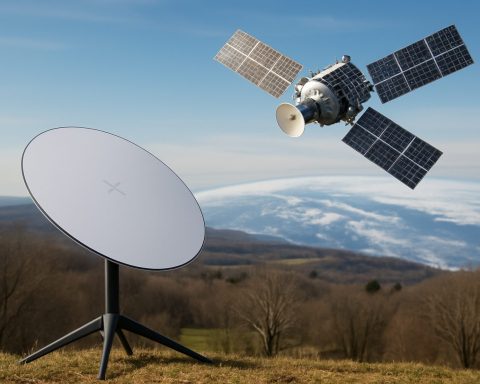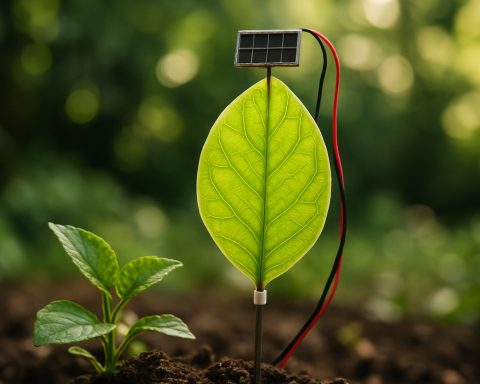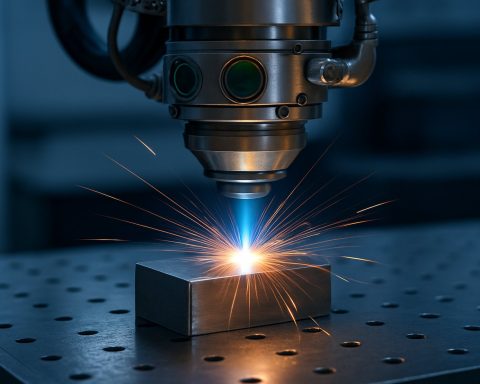- Porsche is leading an initiative to recycle high-voltage EV batteries, aiming to reshape the electric vehicle landscape.
- The recycling process converts defunct batteries into “black mass,” containing essential metals like nickel, cobalt, manganese, and lithium.
- Porsche achieves high-purity extraction through a sophisticated refinement process, maintaining its standards for future EV models.
- The initiative promotes a circular economy, reducing environmental impact and dependency on raw materials, while preparing for future EU regulations.
- Barbara Frenkel, leading the initiative, aligns Porsche’s strategy with sustainable innovation and resource security.
- The project reinforces Porsche’s commitment to sustainability, marking a significant role in the automotive green revolution.
- Porsche’s effort exemplifies turning waste into a resource, showcasing a path to a sustainable future in the automotive industry.
Porsche, a name synonymous with innovation, now embarks on a pioneering journey to reshape the electric vehicle landscape with a cutting-edge initiative dedicated to recycling high-voltage EV batteries. As electric vehicles surge in popularity, the need for sustainable practices becomes paramount, and Porsche stands at the frontier of this new era.
At the heart of Porsche’s bold experiment is the transformation of end-of-life batteries into a valuable asset. Through an intricate mechanical shredding process, defunct batteries are reduced to a substance known as “black mass.” This vital granulate captures precious metals such as nickel, cobalt, manganese, and lithium—cornerstones of battery technology. From their pilot project alone, Porsche has already amassed an impressive 65 tonnes of this material, underscoring the potential of this recycling venture.
The journey of the “black mass” doesn’t end at mere collection. Porsche has devised a sophisticated refinement process to extract high-purity materials, ensuring that the recycled elements meet their unwavering standards of quality and performance. This meticulous approach guarantees that future electric vehicle models maintain the world-class standards expected from Porsche, without compromise.
But this initiative is more than just a technical marvel; it is a strategic leap forward. Porsche’s endgame is a circular economy—a self-sustaining cycle where materials from old batteries breathe new life into the next generation. By leveraging recycled content within new battery cells, the German automaker aims to diminish its environmental impact substantially, reduce dependency on volatile raw material markets, and comply with upcoming stringent EU regulations on battery content and traceability due to take effect in 2031.
Central to Porsche’s innovation is Barbara Frenkel, the Executive Board Member for Procurement. Under her guidance, Porsche is not merely adapting to global trends but setting new benchmarks in sustainable production. The overarching goal is clear: reinforce Porsche’s legacy as a leader in sustainable automotive innovation, while also ensuring resource security amidst a shifting geopolitical landscape.
This vision aligns harmoniously with Porsche’s broader sustainability objectives—demonstrating not just an adherence to environmental needs, but an embrace of them. In doing so, Porsche crafts a narrative of responsibility and foresight, seizing a pivotal role in the green revolution within the automotive world.
Porsche’s initiative is a testament to purposeful innovation, providing a roadmap for others to follow. It’s a thrilling prospect: the transformation of waste into a sustainable resource, propelling us towards a cleaner, more resilient future. For Porsche, this is not just a project; it’s a commitment to redefining excellence in an ever-evolving world.
Porsche’s Green Revolution: Transforming Electric Vehicle Battery Recycling
A Comprehensive Dive into Porsche’s EV Battery Recycling Initiative
Porsche’s trailblazing approach to electric vehicle (EV) battery recycling has caught the attention of the automotive world. As the demand for EVs grows, the environmental implications of battery disposal cannot be overlooked. This article explores additional facets of Porsche’s initiative, underscoring its impact on sustainability, industry standards, and future projections.
How Porsche is Revolutionizing Battery Recycling
1. The Shredding Process and Black Mass: Porsche’s method involves an intricate mechanical shredding process that results in the creation of “black mass,” a compound rich in nickel, cobalt, manganese, and lithium. Through this, Porsche aims to set a new standard in recovery efficiency.
2. Refinement and Purity Standards: By implementing a sophisticated purification process, Porsche ensures that the extracted materials meet high-quality benchmarks, maintaining their hallmark performance levels.
3. Circular Economy Goals: Emphasizing a circular economy, Porsche conceives a model where recycled materials reenter the production cycle, minimizing waste and environmental impact.
Pressing Questions and Expert Insights
Why is recycling EV batteries so important?
EV batteries contain metals that are both finite and environmentally taxing to mine. Efficient recycling not only extends the life of these materials but also reduces reliance on new resource extraction, decreasing ecological damage and geopolitical risks.
How does Porsche’s initiative align with the EU regulations?
Starting in 2031, the EU will enforce stricter regulations on battery content and traceability. Porsche’s proactive approach positions it well ahead of these requirements, showcasing the brand’s readiness to comply with and even exceed regulatory expectations.
What are the limitations of current recycling technologies?
Currently, the main limitations involve the cost-effectiveness and scalability of battery recycling technologies. While Porsche’s project is promising, ongoing innovation is crucial to reducing costs and meeting global demand.
Market Forecasts and Industry Trends
– Growing Demand for Recycled Materials: With EV production ramping up, the demand for recycled materials is predicted to double by 2030, according to industry experts.
– Reduction in Raw Material Dependency: Companies, including Porsche, are looking to reduce dependency on raw materials sourced from unstable regions, aiming to stabilize supply chains and mitigate geopolitical risks.
Real-World Use Cases and Applications
– Automotive Industry: Other automakers are closely monitoring Porsche’s progress, potentially leading to widespread adoption of similar recycling initiatives across the industry.
– Consumer Electronics: The refining process Porsche uses could eventually apply to recycling batteries from consumer electronics, further broadening its ecological impact.
Pros & Cons Overview
Pros:
– Reduces environmental impact.
– Enhances resource security.
– Aligns with future regulations.
– Sets industry-leading benchmarks in quality.
Cons:
– High initial costs.
– Technological challenges in scalability.
– Dependence on continued research and development.
Actionable Recommendations for Companies
– Invest in Recycling Technologies: Early investment in efficient recycling processes can position companies for long-term success.
– Adopt Circular Economy Models: Shift towards resource regeneration in production to achieve sustainability.
– Prepare for Regulatory Changes: Stay ahead of regulatory shifts by adopting forward-looking strategies that exceed compliance.
Quick Tips for Consumers
– Support Brands with Green Initiatives: Choose to purchase from brands actively working to minimize their environmental footprint.
– Stay Informed: Follow trends and developments in vehicle sustainability to make knowledgeable purchasing decisions.
For more updates and insights, consider visiting Porsche’s official website.
In conclusion, Porsche’s strategy in EV battery recycling is a crucial step toward sustainable luxury, reinforcing the brand’s commitment to ecological integrity and industry innovation.









